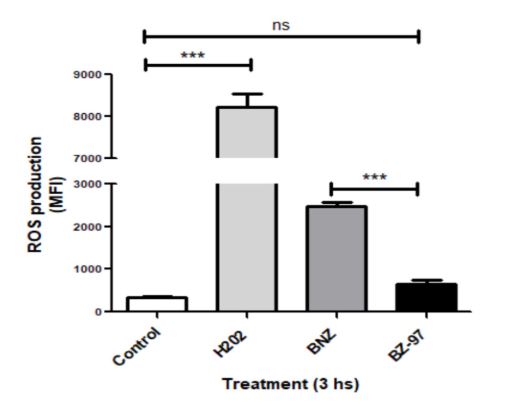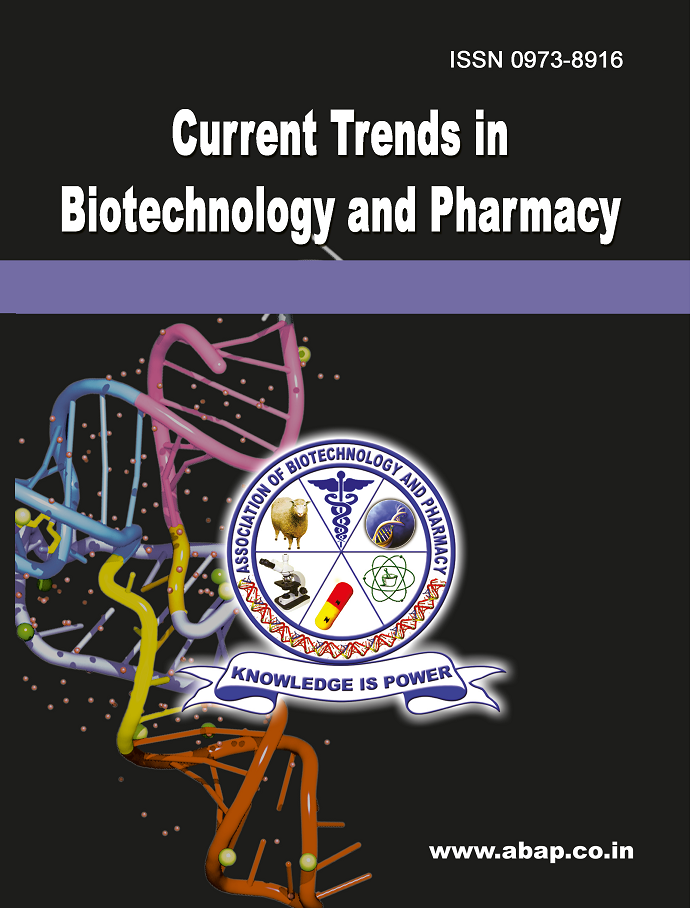BZ-97: A Promising Compound Against Trypanosoma cruzi
DOI:
https://doi.org/10.5530/ctbp.2024.2.23Keywords:
Trypanosoma cruzi, anti trypanosomatid, acidocalcisome, benzimidazole scaffoldAbstract
Chagas Disease has been considered “the most neglected among the neglected diseases.” Only two very toxic drugs developed in the 1960s have been approved to control the disease in its acute phase and are infective in the chronic stage of the illness. It is imperative to find new molecules that can act against the causative parasite, Trypanosoma cruzi. BZ-97 is a synthetic product derived from the benzimidazole scaffold. It was tested against other human parasites, showing the best activity (IC50 = 0.76 μM) towards T. cruzi intracellular stages. The effects of BZ-97 on epimastigotes of the Y strain were analyzed. Signs of changes in the parasite homeostasis were evident by acidocalcisomes alkalinization, calcium mobilization, changes in their morphology and some signs of apoptotic events with a lack of ROS production, which is a crucial advantage over the behavior of the reference drug, benznidazole. Acidocalcisomes alkalinization was evidenced through fluorescence microscopy analysis and the use of 5-[N-ethyl-N-isopropyl] amiloride (EIPA), an inhibitor of the TcNHE pump, confirmed the involvement of this proton pump in the BZ-97-mediated acidocalcisome alkalinization. BZ-97 is presented as a potential lead compound against T. cruzi that is worthy of further studies in the future.



